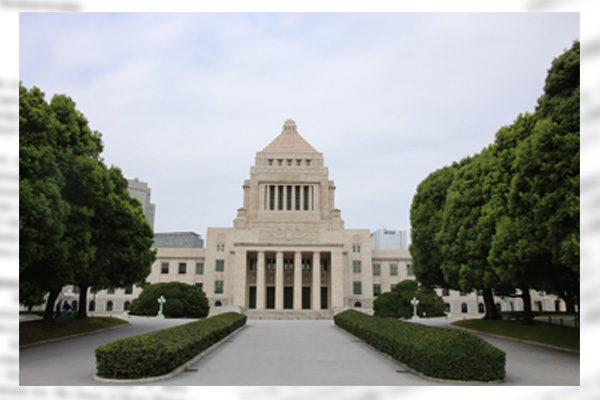The raison d'etre of Japan’s House of Councilors is fundamentally called into question as Foreign Minister Yoshimasa Hayashi was absent from a meeting of Group of 20 foreign ministers in India for the reason that he had to attend a meeting of the upper house.
Hiroshige Seko, secretary general of the ruling Liberal Democratic Party members in the upper house, told a press conference on February 28 that the question-and-answer session of the upper house Budget Committee was one of the most important sessions and should be attended by all cabinet ministers, indicating that Hayashi would have no choice but to skip the G20 meeting. But the prime minister can answer questions on behalf of the foreign minister if necessary. In fact, Hayashi spoke only for 53 seconds at the March 1 upper house session.
At a press conference on March 3, Seko criticized the Prime Minister’s Office and the Ministry of Foreign Affairs for failing to pave the way for Hayashi’s presence at the G20 meeting. Such criticism may not suitable for Seko who has served important government posts including deputy chief cabinet secretary and minister of economy, trade and industry. Seko should have encouraged the government to let Hayashi attend the G20 meeting. Prime Minister Fumio Kishida and Foreign Minister Hayashi himself should seriously reflect on the fact that they lacked enthusiasm to get upper house approval on Hayashi’s foreign travel, exposing a blunder to the world.
Nicknamed carbon copy of lower house
The government’s budget for fiscal 2023 cleared the lower house on February 28, ensuring the budget would be enacted before the fiscal year starts on April 1. The Japanese constitution stipulates that a budget passed by the lower house will be automatically enacted in 30 days even without approval by the upper house. Deliberations at the upper house on the budget thus is a de facto throwaway match, however individual upper house members endeavor to make their deliberations meaningful. What is questioned here is not individual members’ quality. Some upper house members are more qualified than lower house counterparts. Upper house members have an advantage in spending a great deal of time tackling policy issues during their six-year term because the upper house, unlike the lower house, is free from dissolution.
Is it still necessary for the upper house to repeat what the lower house does? The upper house has been ridiculed as a carbon copy of the lower house. For instance, the prime minister’s policy address at the outset of each National Diet session is delivered separately at the both houses. Why not start by getting the policy speech done in one delivery? And under the current constitution, both houses nominate the prime minister, though with the lower house nomination overriding the upper house if different persons are nominated. It has been questioned if the upper house’s separate nomination is meaningful.
Reform election systems
Heated political reform debate 30 years ago focused on the change of lower house election system, failing to fully consider how the lower and upper houses should share roles. As a result, both houses now have the similar combination of single-seat constituency and proportional representation systems, which is not seen in other countries.
The lower house could adopt a complete single-seat constituency election system, while the upper house could comprise 94 members, with two elected from each prefecture just like the U.S. Senate. Or the upper house could keep its distance from the administration by neither nominating the prime minister nor sending its members into the cabinet. The upper house alone, as a general rule, could be authorized to approve key government appointments. The structure of the National Diet should be reformed fundamentally in this way. If not, the two houses will remain similar to each other indefinitely. National Diet lawmakers should take the initiative in reforming the parliament, instead of being complacent with their positions.
Takashi Arimoto is a Planning Committee member at the Japan Institute for National Fundamentals and publisher of Monthly Magazine SEIRON at the Sankei Shimbun newspaper.


